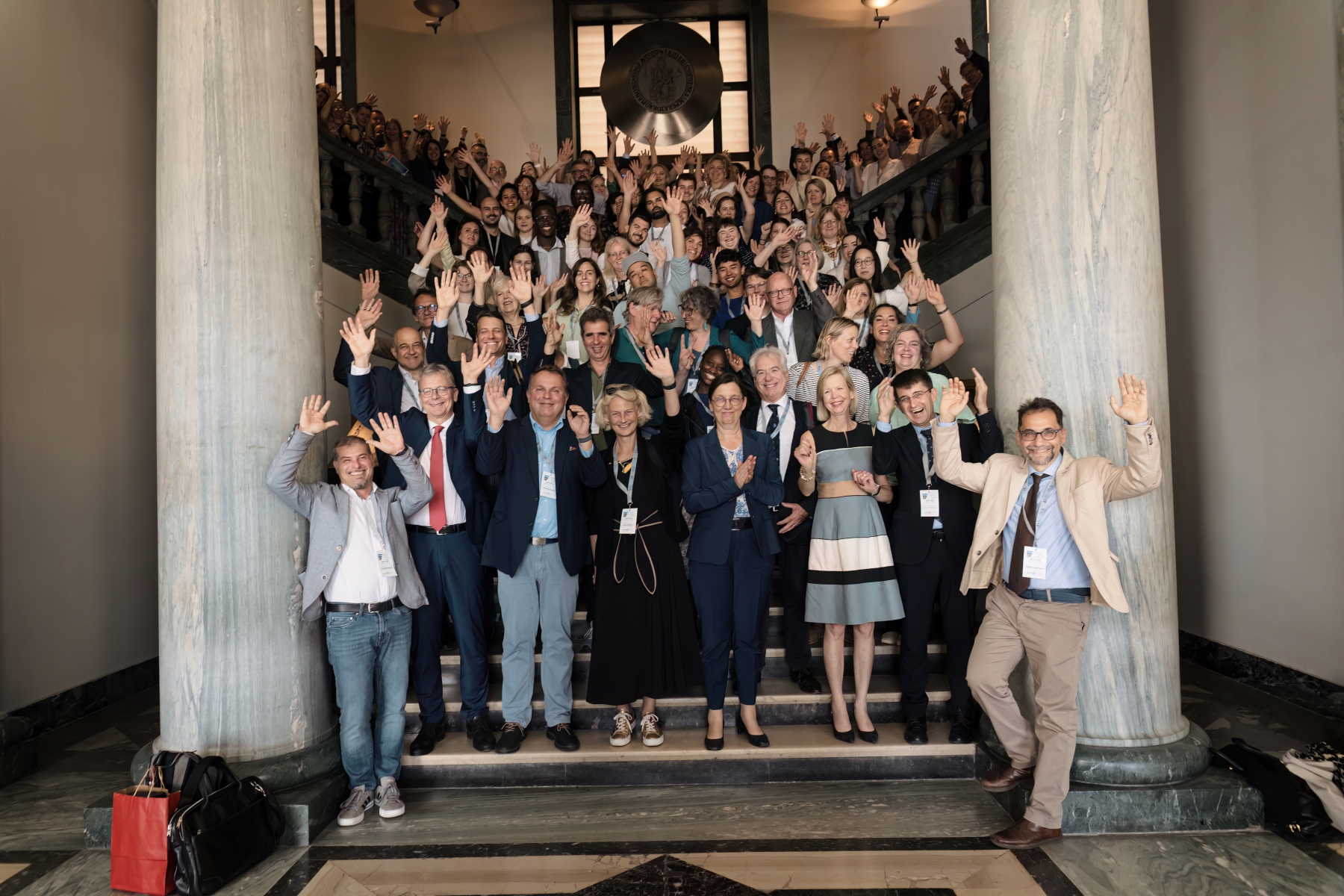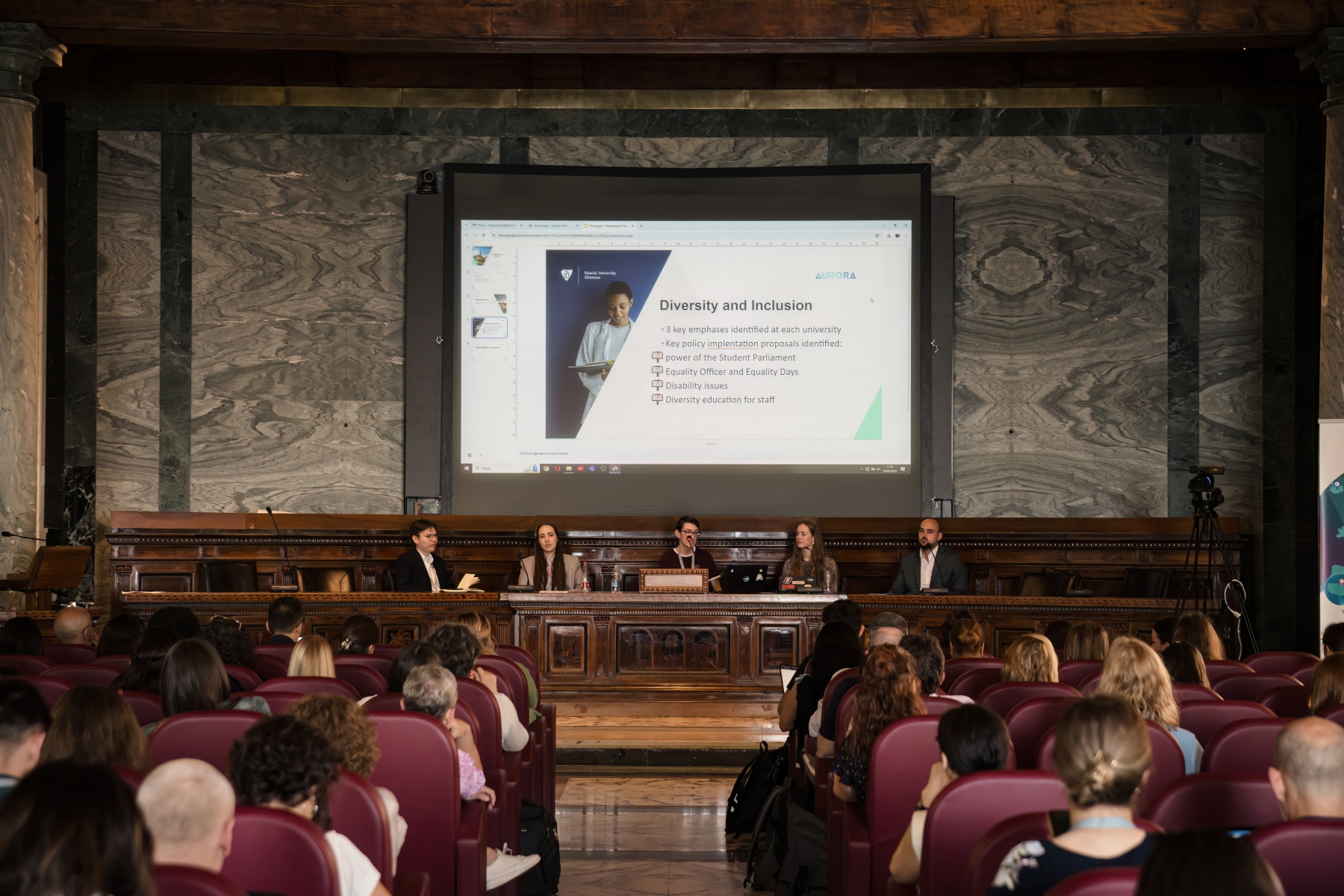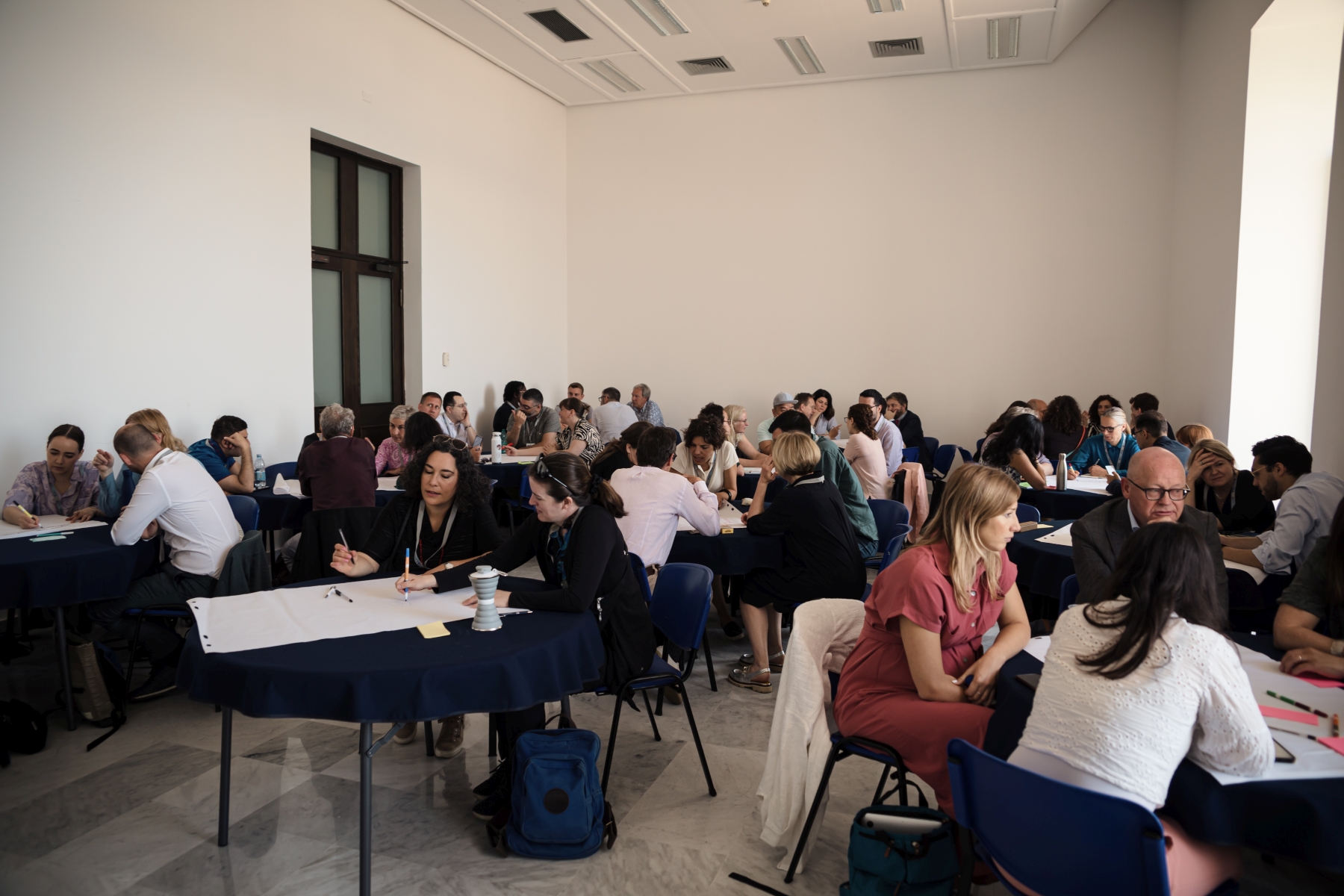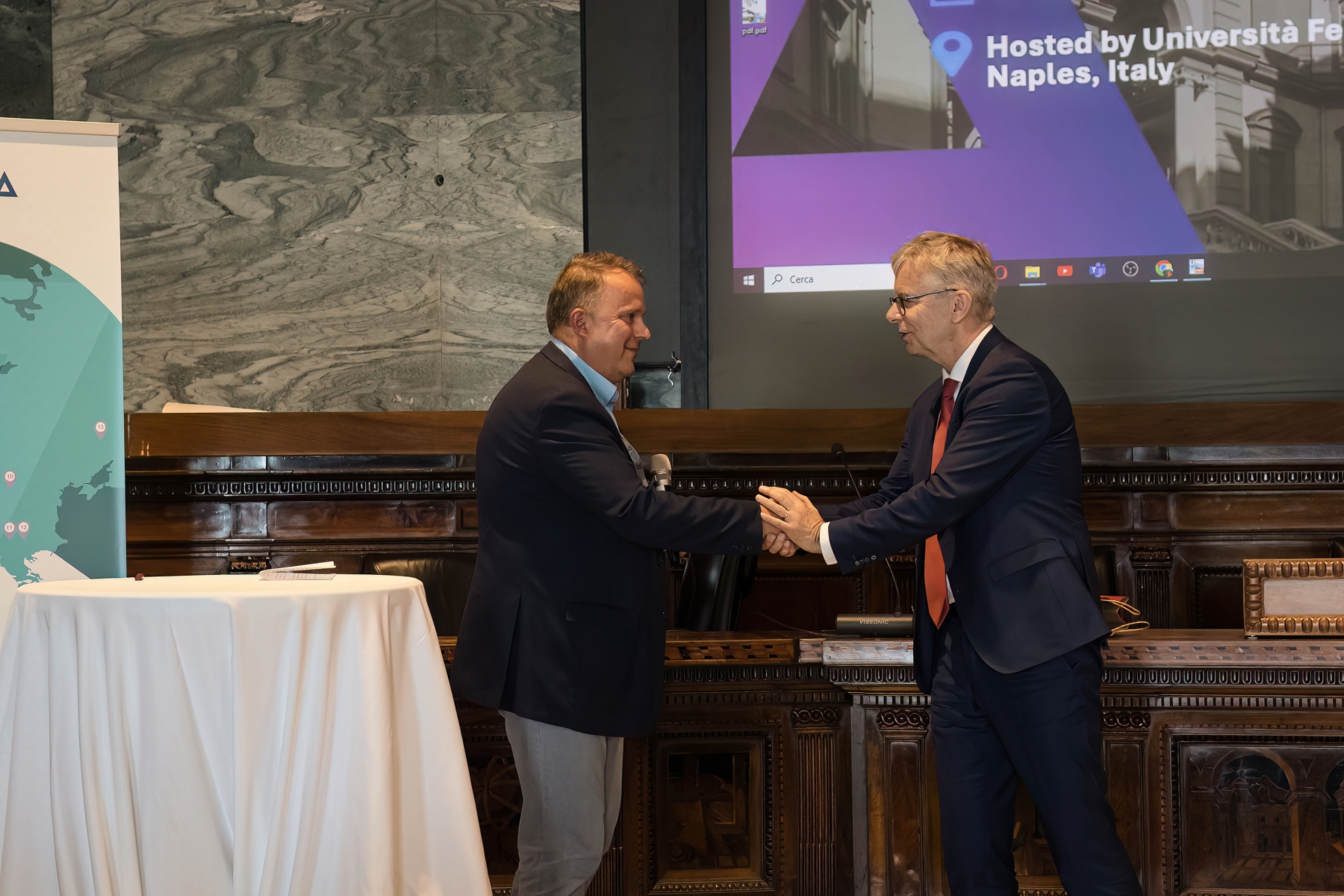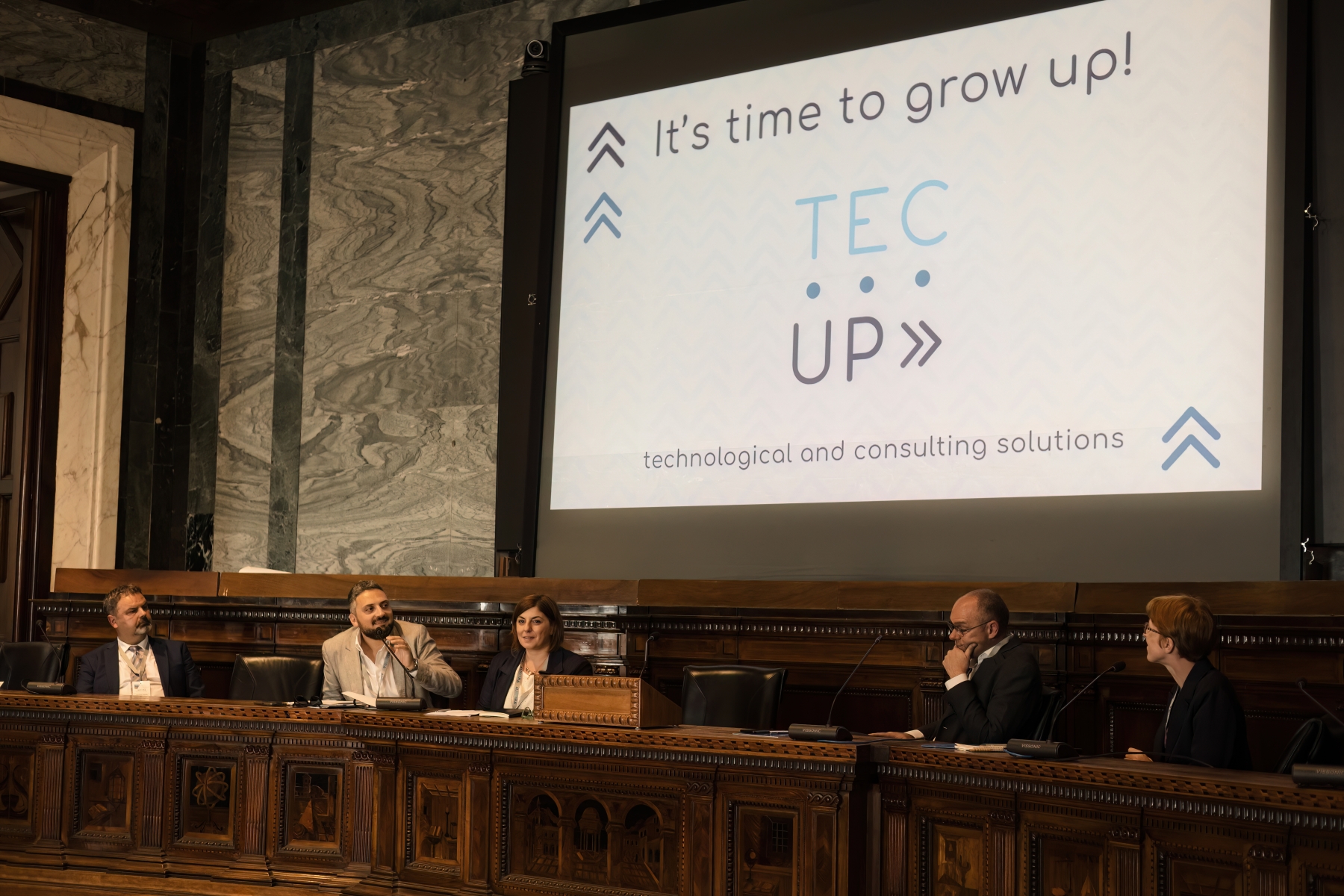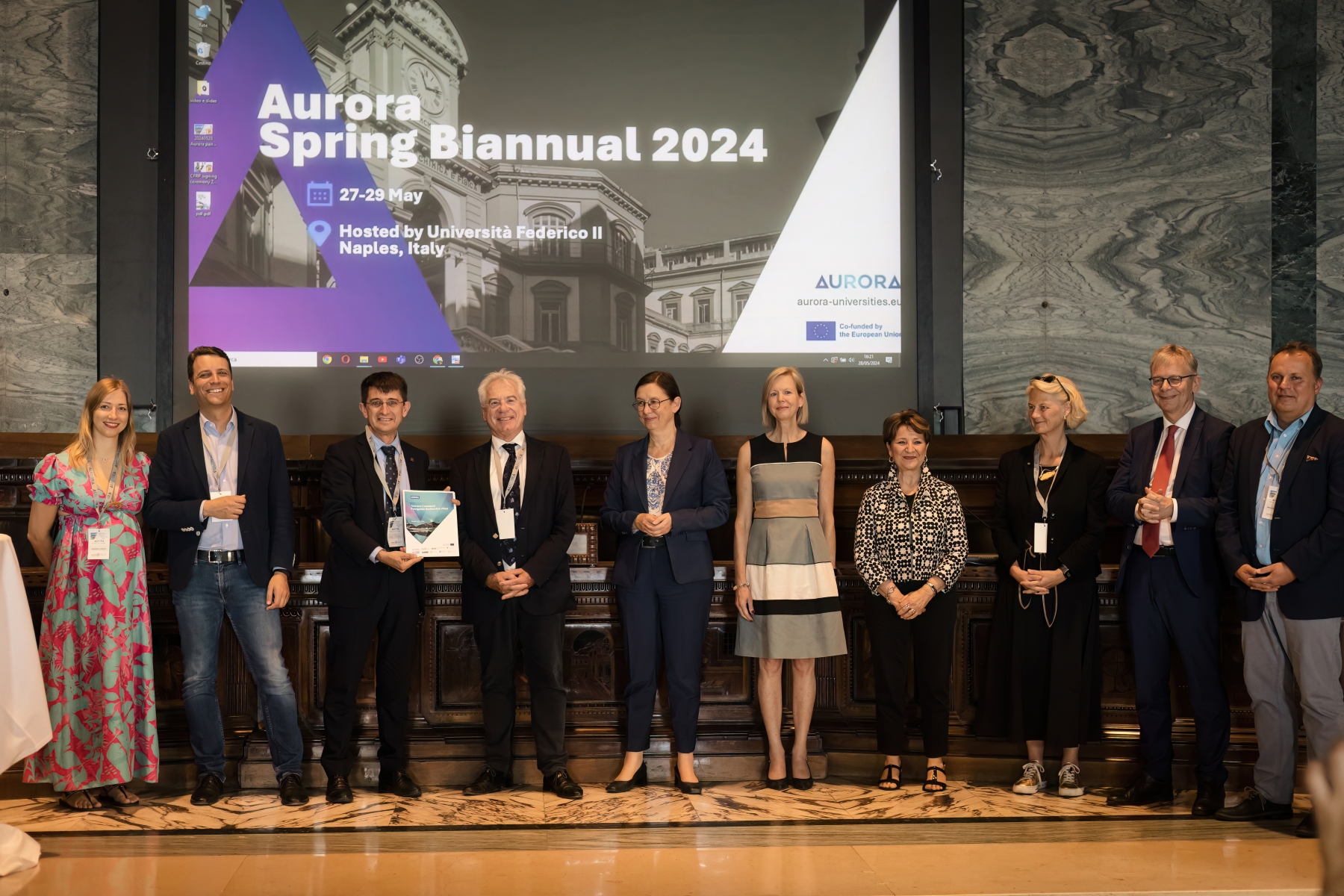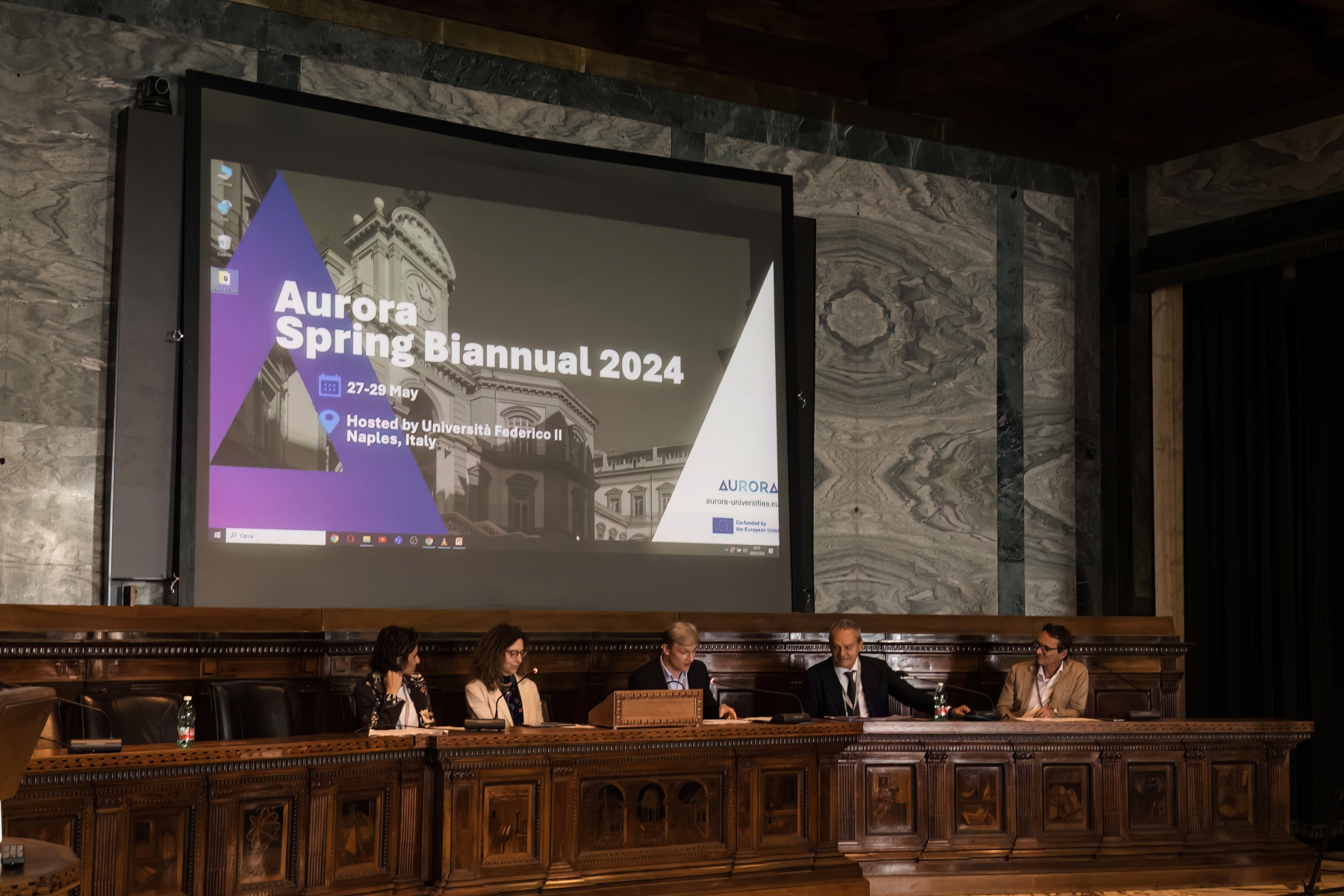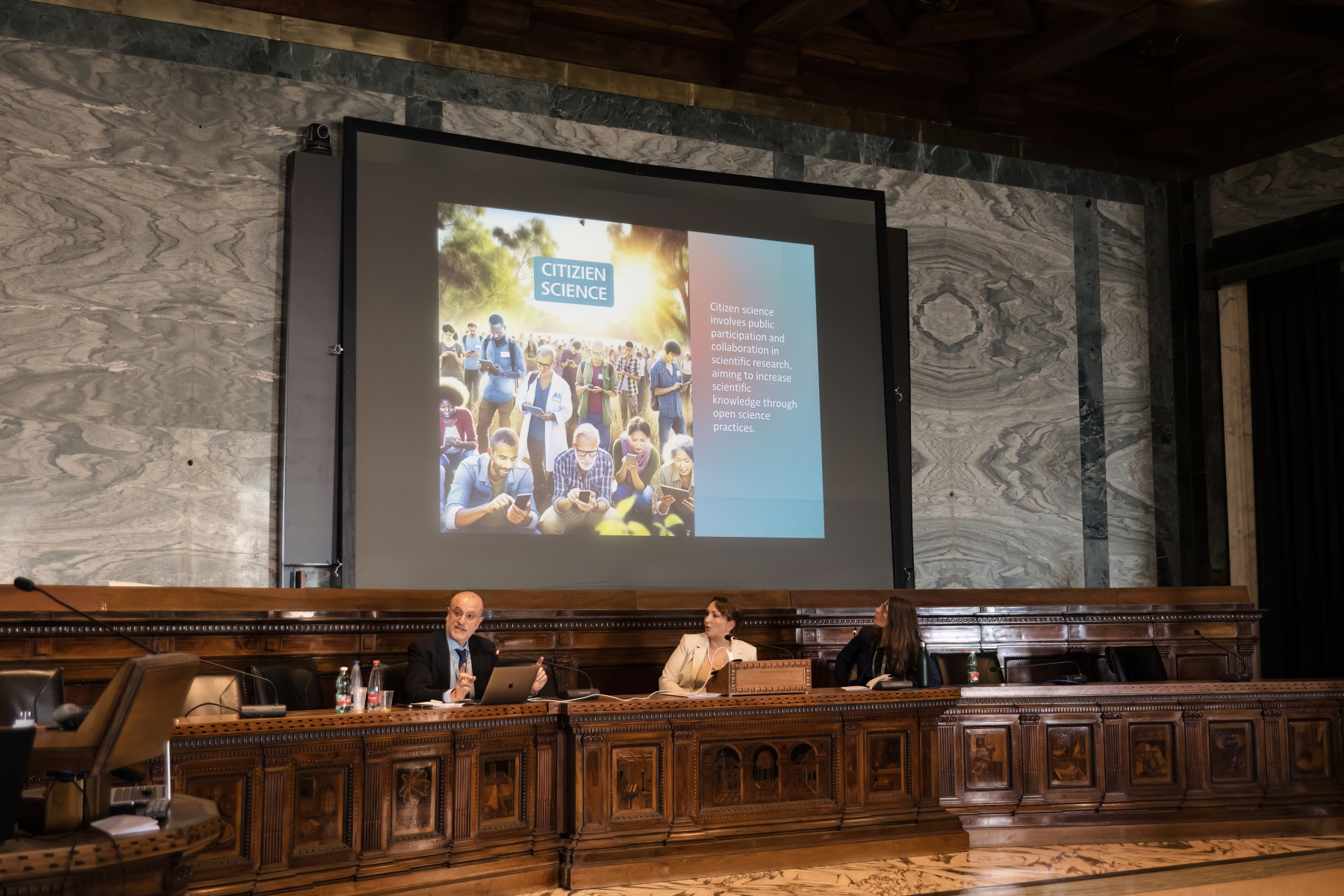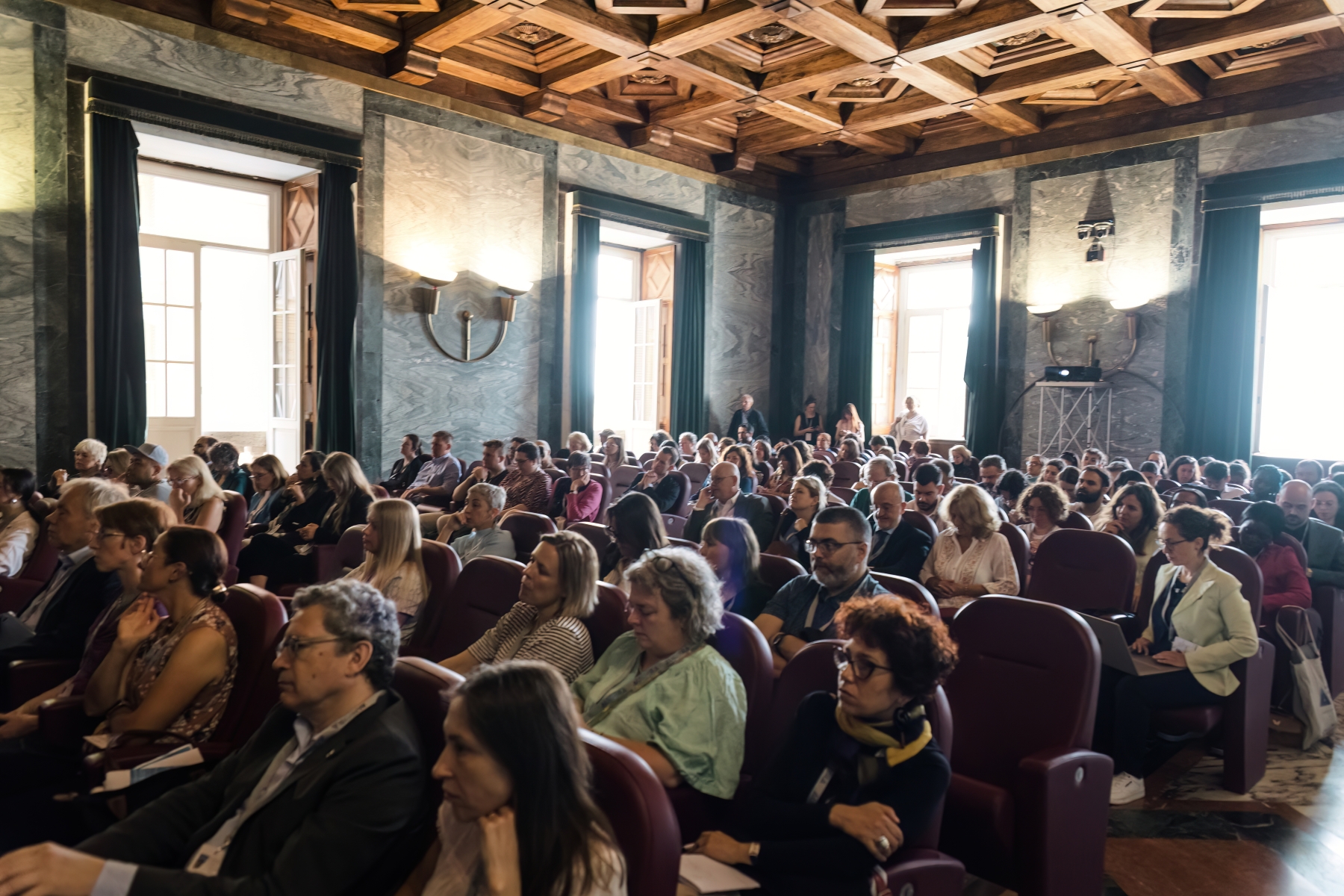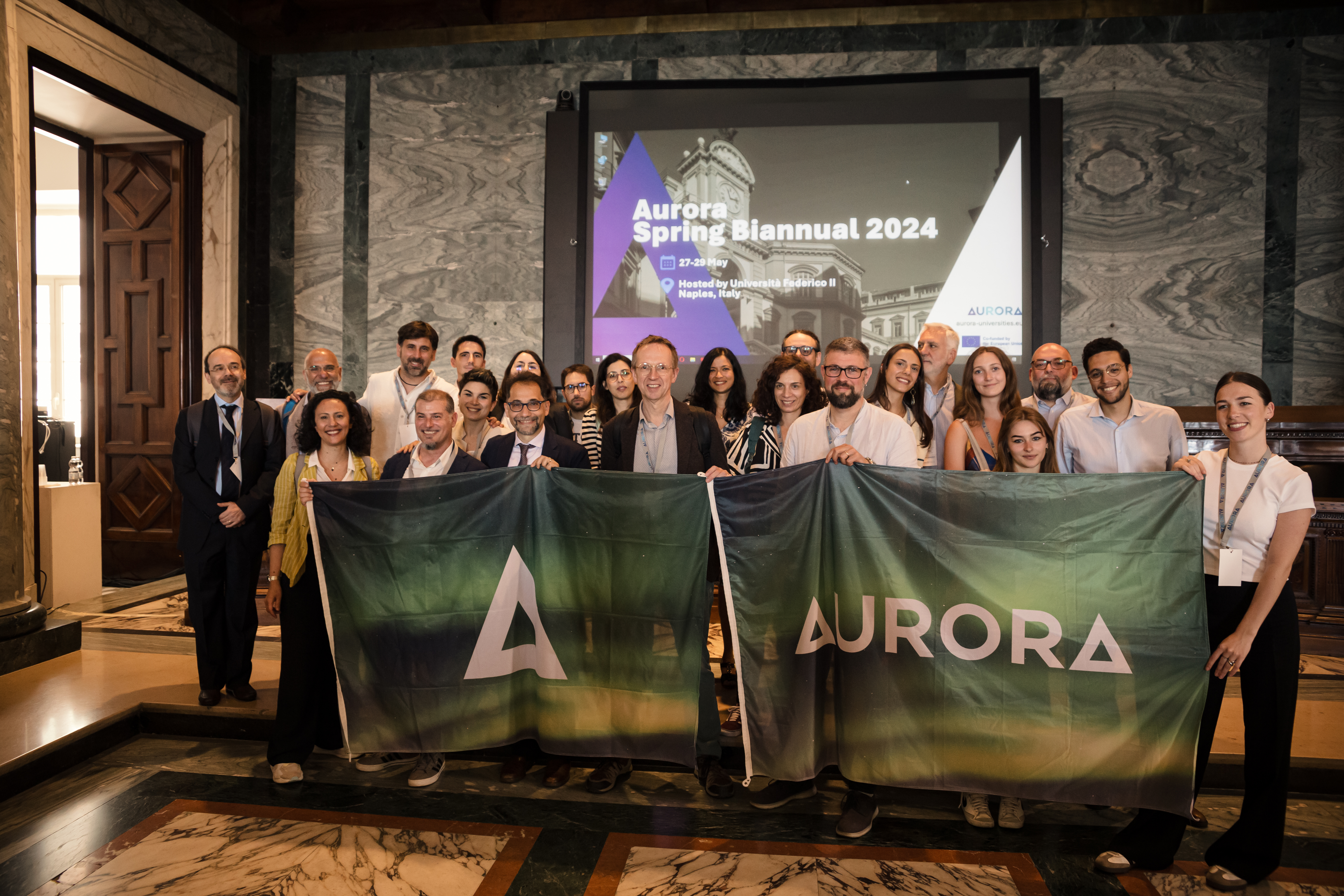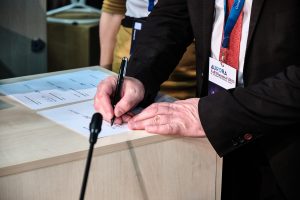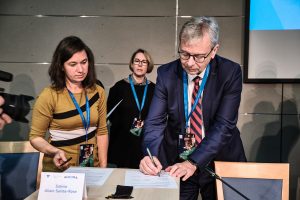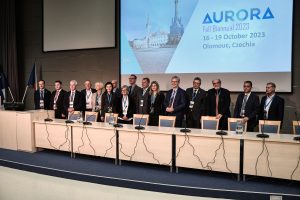Martin Procházka Elected as New Aurora President
Martin Procházka, Rector of Palacký University Olomouc, has been elected to be the new Aurora president by the Aurora General Council during the Aurora Spring Biannual 2024. He takes over from Jón Atli Benediktsson, Rector of the University of Iceland, who has held the position of Aurora President for the past four years.
Following the general council’s decision, Jón Atli Benediktsson passed on the torch in the public handover ceremony during the Biannual. During this ceremony, Rector Procházka presented his predecessor with a vase made of Bohemian crystal to thank him for his service. “Jón Atli, this gift is not only a token of our friendship, but also a symbol of your excellent work for Aurora. Bohemian crystal, renowned for its exquisite craftsmanship, shines with the combination of tradition and innovation that we strive for at Aurora and reflects our commitment to excellence in education and research,” said Procházka.


In his acceptance speech, he emphasised that in his role as President, he wants to give the universities and all members of the community space for expression and the opportunity to shape the future Aurora and highlighted students as a key element in his vision of Aurora. “The students’ enthusiasm and their ideas are a great inspiration to us all. As President, I will aim to continue working to create a student-oriented and inclusive environment,” underlined Procházka.
Martin Procházka is the first Aurora President elected under a new system of rotating Aurora presidency. By unanimous decision of the Aurora General Council, the Aurora Presidency will rotate between the member universities. This system, inspired by the rotating EU-presidency, will allow all Aurora universities to leave their mark on Aurora’s policy and strategic decision-making.
In this system, the general council elects a rector to serve on the Aurora board as president-elect one year prior to them taking the mantle of Aurora President for a one-year tenure. After this year, they stay on the Aurora Board for one more year as Past President, to ensure continuity of governance.






